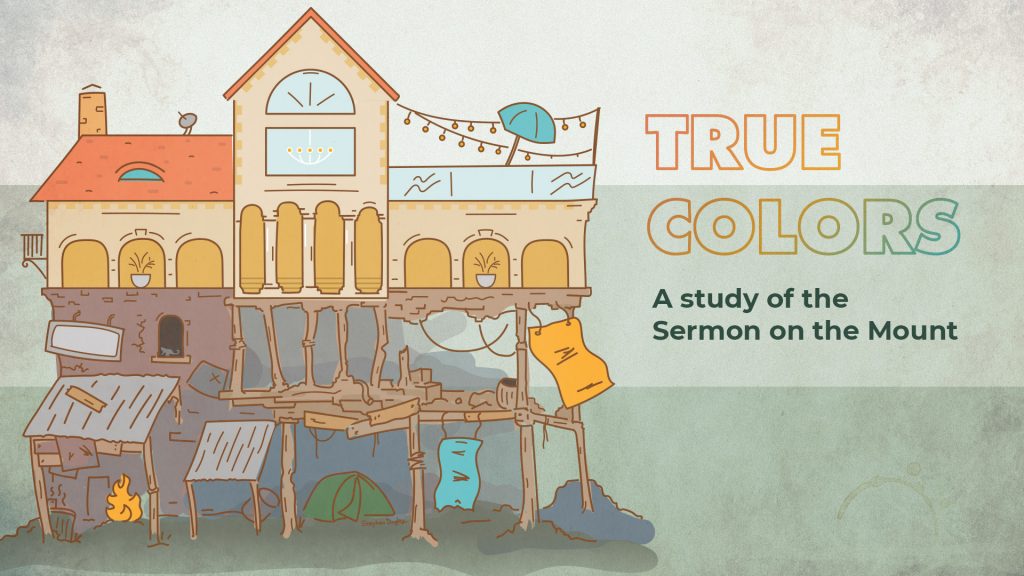Passage: Matthew 5:31-37
Guide for Group Discussion or Personal Reflection
Sermon Summary
Throughout Matthew 5-6, Jesus is unpacking what true righteousness looks like, and in Matthew 5:31-37 he addresses the area of commitment-making. Jesus calls for us to be people who keep our commitments—both in marriage specifically, and any time we give someone our word, more generally (which we will look at next week). Whereas many seek to be free from commitments, true flourishing is found in making commitments, not in keeping ourselves free from them.
The passage, therefore, shows the high priority Jesus places on keeping the commitments we’ve made. In the context of marriage, the religious leaders of Jesus’ day used the law itself to justify people’s aversion to following through on their marriage commitments. Deuteronomy 24, which allows for a husband to “write a certificate of divorce” for his wife if he “finds something indecent in her” was only meant as an accommodation for our hardness of heart (and a protection for women)—not as expansive license for breaking our marriage vows.
So, then, while there are certain limited NT grounds for divorce, Jesus teaches that our desire should be to keep our marriage commitments, not to find a way out of them. Jesus’ view of the marriage covenant is so high, in fact, that “everyone who divorces his wife, except on the ground of sexual immorality, makes her commit adultery” (5:32)—through forcing her into a second marriage (which would have almost certainly happened in that culture) while the first marriage covenant should still be in place.
While Jesus’ standards are high, they are high because he’s protecting something beautiful. Commitments are about “falling in love with something and building a structure around it for the moments when that love falters”. The gospel forms us into a community who makes deep commitments and sticks to them—both in marriage, and in all aspects of our lives—because Jesus made the ultimate commitment to us. Though Jesus enjoyed eternal fellowship with God in heaven, he bound himself to us in love, and did not break his commitment to redeem us, even though it cost him his life. A community who worships this Savior will be a commitment-keeping people.
Sermon Outline:
• The Priority of Commitment (5:31-37)
• How Jesus Forms a Committed Community (C.f. Philippians 2:8-10)
Group Discussion & Personal Reflection Guide
Re-read the passage(s): Matthew 5:31-37
The Priority of Commitment (5:31-37)
1) INTRO: Pastor Bobby talked about how a common belief today is the belief that happiness is found in keeping ourselves free of commitments—in keeping our options open. Do you believe that our culture sends us this message, whether explicitly or implicitly? If so, what are some ways this message is reinforced?
2) Read these three passages as a group: Matthew 5:31-32 (we will focus on 5:33-37 next week), Deuteronomy 24:1-4, and Matthew 19:1-9, and reflect on:
• What was the purpose of the divorce law in Deuteronomy 24:1-4?
• Why did God allow for such a law?
• How were the Pharisees misusing this law?
• What is Jesus’ intent, when it comes to our keeping our marriage commitment? How is this different than the Pharisees’ intent?
3) Re-read Matthew 5:32. How does this verse further communicate the high value Jesus places on keeping our marriage vows?
4) In the sermon, Pastor Bobby explained how people were essentially using the law itself (Deut. 24) to justify getting of marriage commitments. As you think about the commitments you’ve made in your life—whether in marriage or otherwise—what are some common justifications you’ve used, when seeking to avoid or break commitments?
5) Can you think of a commitment you’re in right now that you’re tempted to back out of? If so, why? How might keeping that commitment help you to represent Jesus?
How Jesus Forms a Committed Community (C.f. Philippians 2:8-10)
6) Re-read Philippians 2:5-11, which Pastor Bobby referenced at the end of the sermon. What kind of commitment to us did Jesus make in these verses? What did it cost him?
7) How does recognizing Jesus’ commitment to us help form us into a community that values making and keeping commitments?
Additional Application Questions
Q) How else would you like to engage with God this week?
Q) How can you tangibly care for those in your community this week, both inside and outside of the church?
Prayer
Spend time praying for yourselves, our church community, the North Shore community, and our nation and world—particularly those most vulnerable.

